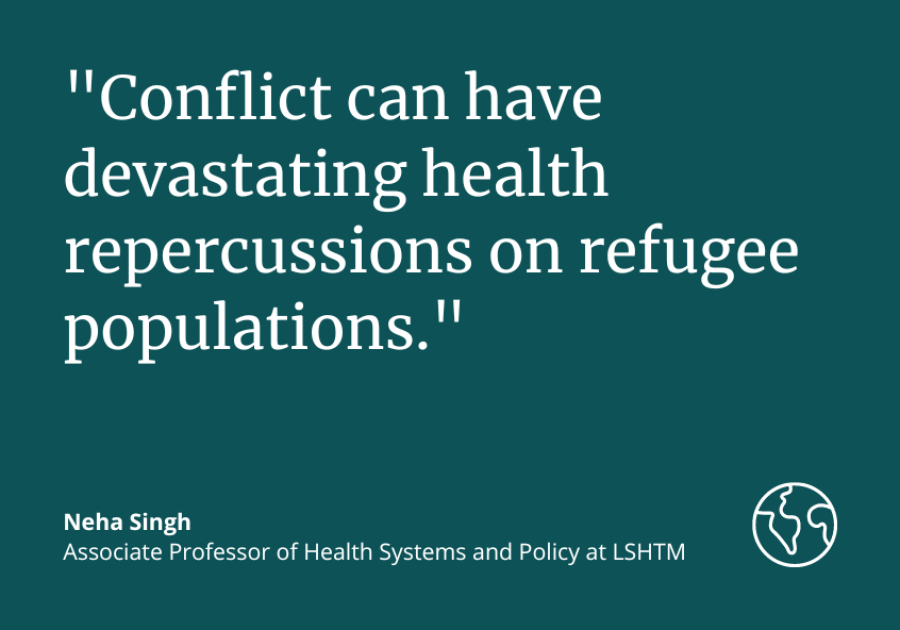
Neha Singh: "Conflict can have devastating health repercussions on refugee populations."
Marked every year on 20 June, World Refugee Day is an opportunity to understand the life-threatening plight of refugees, recognise their resilience, and offer support by giving refugees a platform, raising awareness of their situations and calling for their rights – for safety, asylum, protection – to be upheld.
Russia escalated its invasion of Ukraine at the end of February this year. This has created 6.8 million refugees who have fled to Poland, Romania and Hungary among many other countries. These refugees have complex health needs, influenced by their experiences before fleeing their home, during transit, or after arrival in other countries. These range from untreated infectious diseases to chronic conditions that need managing, as well as maternal care and mental health issues.
As we enter the fourth month of the conflict, we want to look for solutions to help those in need. In terms of LSHTM, these include supporting our staff and students who have been affected by the conflict, continuing to raise awareness of the situation, using our expertise in humanitarian research to contribute to and improve the current response, as well as evaluating what is being done.
Public and international health experts from LSHTM - Neha Singh, Bayard Roberts, Michelle Lokot, Adrianna Murphy, Claire Dooley, Joy Lawn, Susannah Mayhew, Debra Jackson, Kerrie Stevenson, Finn McQuaid and Toyin Togun - reflect on the growing health needs of refugees amid the Ukraine conflict.
If you enjoyed this article and would like to build a career in global health, we offer a range of MSc programmes covering health and data, infectious and tropical diseases, population health, and public health and policy.
Available on campus or online, including flexible study that works around your work and home life, be part of a global community at the UK's no.1 public health university.
